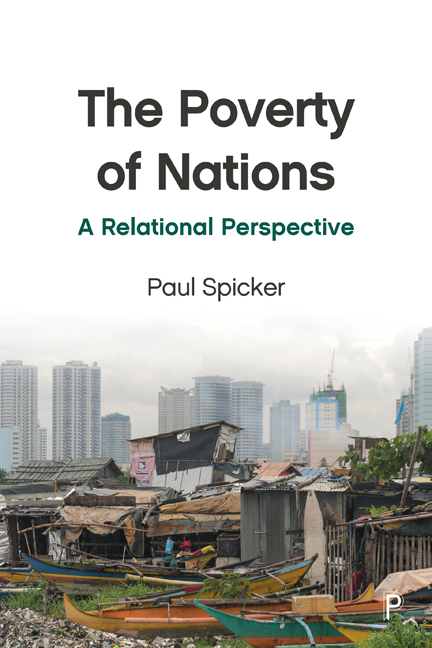2 - Poverty and the Economy
Published online by Cambridge University Press: 18 March 2021
Summary
The reason for beginning with the economy is partly that it provides a context for much of the argument that follows, but more importantly because it represents a framework of relationships in its own right. There is a direct connection between the structure of the economy and the resources that are available to people: the economy shapes how the resources are made, how they are distributed and what can be done with them. Beyond that, however, economic systems set the terms for how people live. This is not just a matter of material goods, but personal, social, economic and political relationships. The pattern of economic production shapes the key distinctions between agrarian and industrial societies, the pattern of urbanisation, communications and domestic life. There are strong links, too, between the pattern of economic organisation and social structures – structures of class, employment and labour, land and housing tenures, personal and social security, taxation and governance, and public services.
‘Capitalism’
The way that the world works is often boiled down to a single word: capitalism. This is supposed to be a generic description of everything about the modern economy. As such, it is not terribly useful, because it fails to distinguish anything about the economy from everything else. If it is going to add anything to the discussion, it is because it is supposed to relate to a much more detailed, ‘thicker’ model of how the economy works.
Two competing models have dominated the discussion. On one hand, pro-market ‘neoliberals’ identify capitalism with the progressive development of the ‘market economy’. On the other, there is the marxist model, which sees capitalism as a defence of a propertied class who own and control the means of production. The two models have some points of similarity, and some major differences; but neither of them, taken singly or together, represents the world as it actually is.
The key elements of ‘capitalism’ in neoliberal thought are:
The establishment of ‘markets’: a system of production, exchange and distribution that develops through the free actions of a multitude of separate actors. Capitalism is identified by Milton Friedman as consisting of ‘the organization of the bulk of economic activity through private enterprise operating in a free market’.
- Type
- Chapter
- Information
- The Poverty of NationsA Relational Perspective, pp. 35 - 52Publisher: Bristol University PressPrint publication year: 2020



